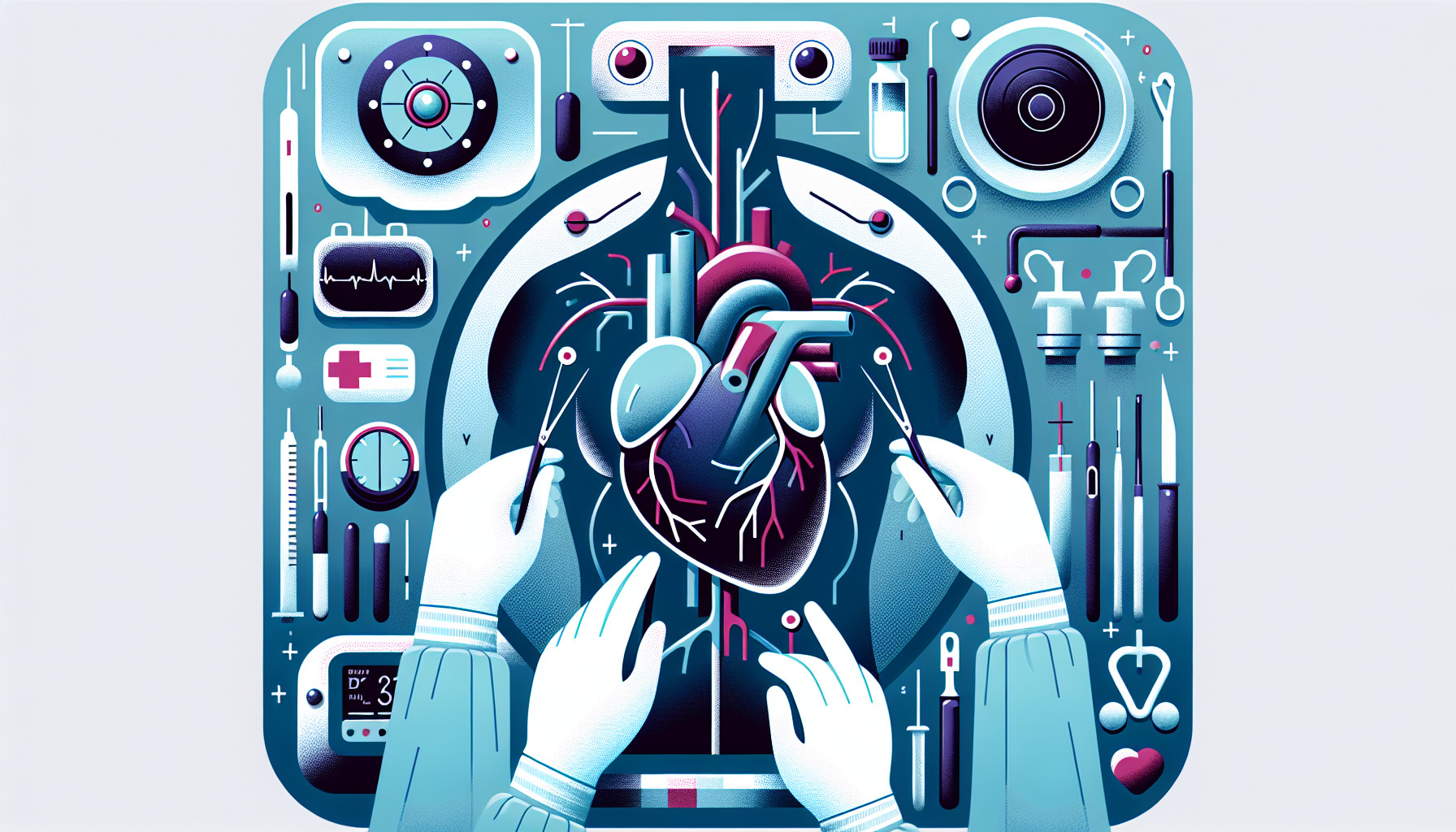Our Summary
The research paper discusses the link between depression and coronary artery bypass grafting (CABG), a common surgery for ischemic heart disease (a condition where the heart’s blood supply is blocked). The researchers found that 30-40% of patients, mainly women, experience depression before and after the surgery. If this depression is not treated, it can continue for many years.
The paper also notes that anxiety levels in patients tend to decrease after the surgery. The researchers are studying various indicators, such as cortisol, C-reactive protein (a marker of inflammation), and oxidative stress biomarkers (indicators of damage in the body), to see if they correlate with post-surgery depression.
Depression after CABG has several negative effects. It can weaken the patient’s response to treatment, increase the likelihood of relapse, and lead to more hospital readmissions and higher death rates. The treatment for this depression often involves antidepressants and/or different types of psychotherapy, with cognitive behavioral therapy (CBT) being a common choice.
The researchers conclude that depression after CABG worsens the patient’s quality of life and overall prognosis. Therefore, it’s important to detect and treat this condition soon after surgery, while also considering the patient’s heart-related disorders.
FAQs
- What is the link between depression and coronary artery bypass grafting (CABG)?
- What are the potential negative effects of depression after CABG surgery?
- How is depression treated in patients who have undergone CABG surgery?
Doctor’s Tip
One helpful tip a doctor might tell a patient about coronary artery bypass is to stay active and engage in regular physical activity. This can help improve cardiovascular health, reduce the risk of complications, and aid in the recovery process after surgery. It is important to follow a personalized exercise plan recommended by your healthcare provider to ensure safety and effectiveness. Additionally, maintaining a healthy diet, managing stress, and attending follow-up appointments are also important for a successful recovery from coronary artery bypass surgery.
Suitable For
Patients who are typically recommended for coronary artery bypass surgery include those with severe blockages in their coronary arteries, leading to symptoms such as chest pain (angina) or shortness of breath. Patients with significant narrowing of multiple coronary arteries, particularly those that supply a large portion of the heart muscle, are also candidates for CABG. Additionally, patients with left main coronary artery disease or those who have not responded well to other treatments, such as medications or angioplasty, may be recommended for CABG. Overall, the decision to undergo CABG is based on the individual patient’s specific condition, symptoms, and overall health status.
Timeline
Overall timeline:
Before surgery: Patients may experience depression due to the stress and anxiety of undergoing a major surgery like CABG. Women are more likely to experience depression at this stage.
During surgery: The patient undergoes CABG to improve blood flow to the heart by bypassing blocked arteries.
Immediately after surgery: Anxiety levels tend to decrease, but depression may persist or develop in some patients.
Post-surgery: Patients may continue to experience depression, which can have negative effects on their recovery and overall prognosis.
Treatment: Depression after CABG is typically treated with antidepressants and/or therapy, such as CBT.
Long-term effects: Untreated depression can lead to worsened quality of life, increased likelihood of relapse, more hospital readmissions, and higher death rates.
Conclusion: Early detection and treatment of depression after CABG is crucial for improving patient outcomes and overall recovery.
What to Ask Your Doctor
Some questions a patient should ask their doctor about coronary artery bypass surgery and depression include:
- What are the risk factors for developing depression before and after coronary artery bypass surgery?
- How common is depression in patients undergoing coronary artery bypass surgery?
- What are the symptoms of depression that I should watch out for after the surgery?
- How can depression affect my recovery and overall prognosis after coronary artery bypass surgery?
- What treatment options are available for managing depression after coronary artery bypass surgery?
- Are there any potential side effects or interactions between antidepressants and other medications I may be taking post-surgery?
- How can I access mental health support services or therapy to help manage my depression?
- Are there any lifestyle changes or self-care strategies that can help improve my mental well-being after the surgery?
- How often should I follow up with a mental health professional or my doctor to monitor my mental health after the surgery?
- Are there any specific biomarkers or tests that can help identify and monitor depression in patients undergoing coronary artery bypass surgery?
Reference
Authors: Stanicki P, Szarpak J, Wieteska M, Kaczyńska A, Milanowska J. Journal: Pol Przegl Chir. 2020 Aug 4;92(5):1-5. PMID: 32945781
